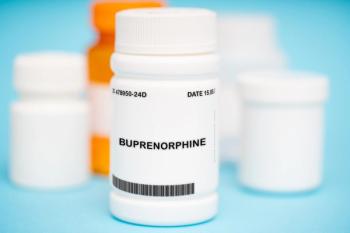
Viewpoint: Qui tam suits and you
Two married pharmacists working for one of the largest PBMs,Caremark, filed a qui tam lawsuit in 2004 against their employer.They alleged Caremark had defrauded a Florida health plan forretired state workers by switching Rxs to higher-priced drugswithout permission and failing to give the health plan credit fordrugs that were returned unopened by customers.
Two married pharmacists working for one of the largest PBMs, Caremark, filed a qui tam lawsuit in 2004 against their employer. They alleged Caremark had defrauded a Florida health plan for retired state workers by switching Rxs to higher-priced drugs without permission and failing to give the health plan credit for drugs that were returned unopened by customers.
A federal official said the government has about 150 fraud cases-many of them qui tam suits-pending that involve more than 500 different drugs. To date, drugmakers have paid about $2.5 billion to settle allegations involving Medicaid and Medicare billing.
FCA allows private citizens who are aware of fraud against the federal government to sue any individual or company that is defrauding the government and recover funds on the government's behalf through a qui tam suit.
If a pharmacy switched a Medicare or Medicaid beneficiary from a lower-priced or generic drug to a higher-priced or brand drug to increase profits or for nonmedical reasons, the pharmacy could be sued under FCA. More than $9.5 billion have been returned to the U.S. Treasury as a result of qui tam suits since 1986.
Generally the qui tam process works this way: An individual who is aware of healthcare fraud files a qui tam suit "under seal," which means no one but the government is told about the suit. This gives the government time to investigate without tipping off the defendant. It then must decide whether to join the case. FCA specifies that the seal may last for 60 days, but it can be extended with the court's permission. If the government decides to join the case, the whistle-blower and his or her attorney work with the Justice Department to pursue the matter. If the government declines to intervene, the whistle-blower and his or her attorney can pursue the suit on their own.
FCA offers whistle-blowers some job protection. If they are retaliated against for filing a qui tam suit, they may be entitled to reinstatement of their job and two times the amount of back pay plus interest. They can also file a wrongful termination suit in state court.
Under FCA, liable defendants must pay three times the government's losses plus a fine for each false claim. Whistle-blowers are entitled by law to 15% to 25% of the recovery that results from their qui tam suits if the government joins the case. If the government doesn't join the case, the maximum recovery increases to 30%. Whistle-blowers whose qui tam cases have been successful have been awarded a total of more than $1.4 billion.
Pharmacists should be aware that whenever a drugmaker offers inducements to switch drugs, the drug company could be liable under FCA. The pharmacy and R.Ph. also could be liable if they accepted such inducements. If such inducements are unreported by the manufacturers, Medicaid "best price" violations also may be implicated. Other ways in which pharmacists may be liable include billing Medicare or Medicaid for returned or unclaimed items and then reselling the drug and billing again. Pharmacies that short-fill or dilute Rxs are also in jeopardy of FCA liability. In addition, inflating or improperly editing reimbursement claims may create FCA liability. With the introduction of Part D prescription plans, observers expect to see new areas of fraud, such as misstating risk corridor and true out-of-pocket (TrOOP) cost calculations.
If a pharmacist suspects Medicare or Medicaid fraud, he or she should consider consulting an attorney who has experience with qui tam cases and such fraud. Reputable attorneys won't charge for preliminary discussions and will take qui tam cases on a contingency basis, meaning they'll share a percentage of the reward but won't get paid if the case is unsuccessful. While there can be many risks for whistle-blowers, the satisfaction of stopping fraud and the financial rewards of a successful qui tam suit can help compensate for those risks.
THE AUTHOR is an attorney with the Washington, D.C.-based law firm of Phillips & Cohen LLP.
Newsletter
Pharmacy practice is always changing. Stay ahead of the curve with the Drug Topics newsletter and get the latest drug information, industry trends, and patient care tips.























